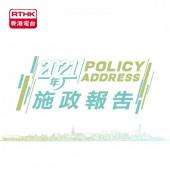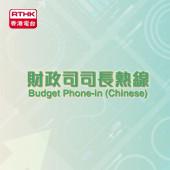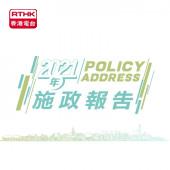 載入中 ...
載入中 ...
返回
Legislator Ip Kin-yuen
2018-07-15
Dear Fernando,
Thank you for the report by the Sub-Committee on Children’s Rights which you submitted to the Legislative Council last week in your capacity as the Sub-Committee’s Chairman. I certainly agree to the views you presented on behalf of the Sub-Committee regarding the improvement of children's rights. I would like to take this opportunity to add some of my personal views for the Government's reference.
We often say: “Children will be our society’s future masters.” and “What you are at the age of 3 will determine what you will be at the age of 80.” The meaning behind these sayings is that how we treat our children today will directly influence their life and the future of our society. To put it simply, what our society will be (in the future) won’t be different from what our children are today.
To examine children's rights in a holistic manner, we need to consider how well Hong Kong has been protecting the rights of children provided for under the United Nation’s Convention on the Rights of the Child, including their right to life, their right to development, their right to protection and their right to participation.
Many articles in the Convention relate to children’s learning and pressure. For example, Article 27.1 provides that “States Parties recognize the right of every child to a standard of living adequate for the child's physical, mental, spiritual, moral and social development.” and Article 31.1 provides that “States Parties recognize the right of the child to rest and leisure, to engage in play and recreational activities appropriate to the age of the child and to participate freely in cultural life and the arts.”
Do children in Hong Kong enjoy the right to life and the right to protection? Yes, we can say that they do, if we compare Hong Kong with war-torn countries and poverty-stricken territories.
However, I trust that you can still recall two recent cases of suspected child abuse. In one of them, a young girl died. In the other, a young girl became vegetative. Therefore, saying that we should protect children’s rights but paying no attention to the way they live and taking no action to help them to have a warm and caring family amounts to nothing but ‘empty words’.
In public hearings before the Sub-Committee on Children’s Rights, I vividly recall parents repeatedly criticizing the Government for the serious inadequacy of its child care service. As a result of this, they have to choose between taking care of their children and their work, which has given rise to a number of contradictions in life. If the Government can fully consider the impact of a policy on children and the needs of the family when it goes through the various stages of policy-making: advocation, visualization, decision-taking and implementation, the policy concerned would be much better able to meet the needs of our citizens.
As regards children’s right to development, whether our children enjoy this right depends very much on our education system. At a meeting last year, a Primary 2 student recalled that one year earlier, when she was in Primary 1, she had said: “I am very busy with my study. Study is a very difficult thing. I have lots and lots of homework.” Now, one year later, she said: “There is so much homework that it is virtually impossible to finish it. When I manage to finish my homework, there is no time to play.”.
In recent years, there have repeatedly been cases of student suicide. As a representative of the education sector, I am deeply saddened and I am very concerned about the impact of school education on the rights of our children. The protection of children’s right to development should start right at the source, that is, we should reduce pressure arising from our education system, bearing in mind that ‘enjoying leisure’ is an important manifestation of children’s right to development.
Unfortunately, the Government has decided to resume Primary 3 TSA (Territory-wide System Assessment). This ‘baton’ of distorted teaching, despite its so-called ‘fine-tuning’, carries with it the problem of ‘entire-Form examination’. In other words, the source of pressure on teachers and students has not been changed in substance.
Surveys conducted by the Professional Teachers’ Union and surveys conducted by parent groups this year invariably show that Primary 3 TSA has generated a lot of pressure on teachers, students and parents. Even little kids find themselves busy with homework, tuition and exams and deprived of opportunities to have a ‘blank moment’ or a ‘free interval’. This being the case, how can we talk about children ‘enjoying leisure’?
In addition, time allocation in full-time schools has unfortunately meant more teaching hours for children. This explains why it has not been possible to solve the problem of our children having ‘no time to play’, no matter how much we improve the hardware and no matter how many more recreational facilities we build for them. For a child ‘to play’ includes doing physical activities. According to a survey conducted by the Chinese University of Hong Kong last year, children and adolescents in Hong Kong performed ‘very badly’ in ‘integrated physical activities’: less than half of our children and adolescents reached the international standard of having one hour a day of moderate-intensity to vigorous-intensity physical activities. Given this, how can we not be concerned about the health of our society's future masters?
As for our children’s right to participation, Hong Kong is not performing well, either.
On the whole, the Government has a responsibility to implement the provisions of United Nation’s Convention on the Rights of the Child, and to ensure adequate protection of our children’s right to participation and expression of views, their right to physical and mental health, their right to freedom from excessive pressure, and their right to the alleviation of poverty and sickness.
Thank you for the report by the Sub-Committee on Children’s Rights which you submitted to the Legislative Council last week in your capacity as the Sub-Committee’s Chairman. I certainly agree to the views you presented on behalf of the Sub-Committee regarding the improvement of children's rights. I would like to take this opportunity to add some of my personal views for the Government's reference.
We often say: “Children will be our society’s future masters.” and “What you are at the age of 3 will determine what you will be at the age of 80.” The meaning behind these sayings is that how we treat our children today will directly influence their life and the future of our society. To put it simply, what our society will be (in the future) won’t be different from what our children are today.
To examine children's rights in a holistic manner, we need to consider how well Hong Kong has been protecting the rights of children provided for under the United Nation’s Convention on the Rights of the Child, including their right to life, their right to development, their right to protection and their right to participation.
Many articles in the Convention relate to children’s learning and pressure. For example, Article 27.1 provides that “States Parties recognize the right of every child to a standard of living adequate for the child's physical, mental, spiritual, moral and social development.” and Article 31.1 provides that “States Parties recognize the right of the child to rest and leisure, to engage in play and recreational activities appropriate to the age of the child and to participate freely in cultural life and the arts.”
Do children in Hong Kong enjoy the right to life and the right to protection? Yes, we can say that they do, if we compare Hong Kong with war-torn countries and poverty-stricken territories.
However, I trust that you can still recall two recent cases of suspected child abuse. In one of them, a young girl died. In the other, a young girl became vegetative. Therefore, saying that we should protect children’s rights but paying no attention to the way they live and taking no action to help them to have a warm and caring family amounts to nothing but ‘empty words’.
In public hearings before the Sub-Committee on Children’s Rights, I vividly recall parents repeatedly criticizing the Government for the serious inadequacy of its child care service. As a result of this, they have to choose between taking care of their children and their work, which has given rise to a number of contradictions in life. If the Government can fully consider the impact of a policy on children and the needs of the family when it goes through the various stages of policy-making: advocation, visualization, decision-taking and implementation, the policy concerned would be much better able to meet the needs of our citizens.
As regards children’s right to development, whether our children enjoy this right depends very much on our education system. At a meeting last year, a Primary 2 student recalled that one year earlier, when she was in Primary 1, she had said: “I am very busy with my study. Study is a very difficult thing. I have lots and lots of homework.” Now, one year later, she said: “There is so much homework that it is virtually impossible to finish it. When I manage to finish my homework, there is no time to play.”.
In recent years, there have repeatedly been cases of student suicide. As a representative of the education sector, I am deeply saddened and I am very concerned about the impact of school education on the rights of our children. The protection of children’s right to development should start right at the source, that is, we should reduce pressure arising from our education system, bearing in mind that ‘enjoying leisure’ is an important manifestation of children’s right to development.
Unfortunately, the Government has decided to resume Primary 3 TSA (Territory-wide System Assessment). This ‘baton’ of distorted teaching, despite its so-called ‘fine-tuning’, carries with it the problem of ‘entire-Form examination’. In other words, the source of pressure on teachers and students has not been changed in substance.
Surveys conducted by the Professional Teachers’ Union and surveys conducted by parent groups this year invariably show that Primary 3 TSA has generated a lot of pressure on teachers, students and parents. Even little kids find themselves busy with homework, tuition and exams and deprived of opportunities to have a ‘blank moment’ or a ‘free interval’. This being the case, how can we talk about children ‘enjoying leisure’?
In addition, time allocation in full-time schools has unfortunately meant more teaching hours for children. This explains why it has not been possible to solve the problem of our children having ‘no time to play’, no matter how much we improve the hardware and no matter how many more recreational facilities we build for them. For a child ‘to play’ includes doing physical activities. According to a survey conducted by the Chinese University of Hong Kong last year, children and adolescents in Hong Kong performed ‘very badly’ in ‘integrated physical activities’: less than half of our children and adolescents reached the international standard of having one hour a day of moderate-intensity to vigorous-intensity physical activities. Given this, how can we not be concerned about the health of our society's future masters?
As for our children’s right to participation, Hong Kong is not performing well, either.
On the whole, the Government has a responsibility to implement the provisions of United Nation’s Convention on the Rights of the Child, and to ensure adequate protection of our children’s right to participation and expression of views, their right to physical and mental health, their right to freedom from excessive pressure, and their right to the alleviation of poverty and sickness.
Politicians and public figures from a range of backgrounds take turns to have their say on important matters of the day in this personal view programme.
Catch it live: Sunday 8:15am - 8:25am
Podcast: Updated weekly and available after broadcast.














